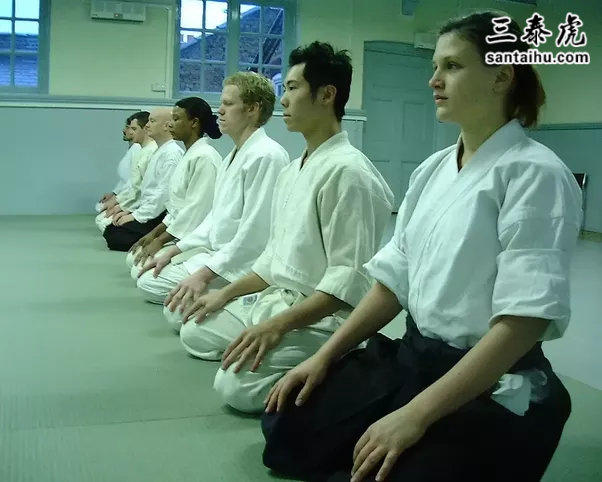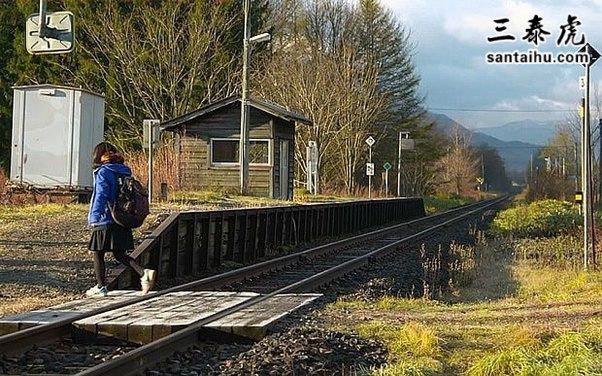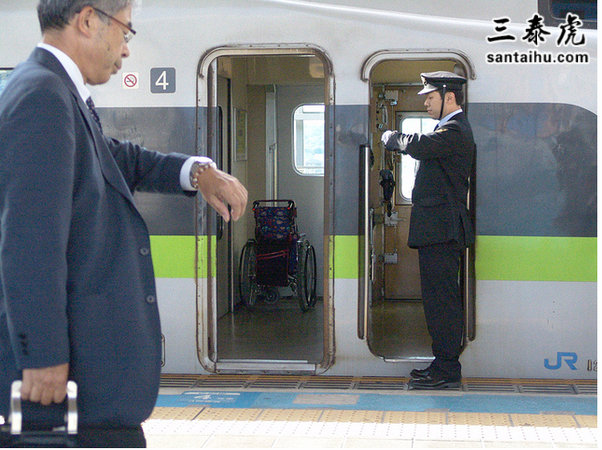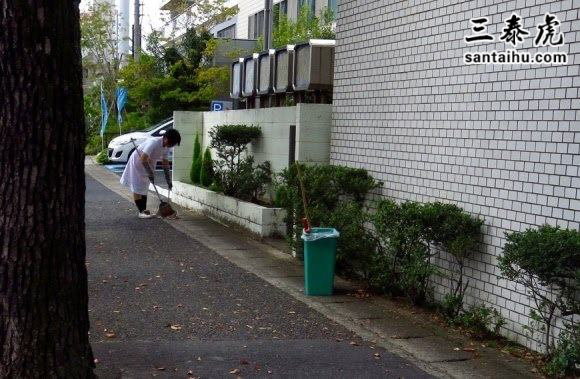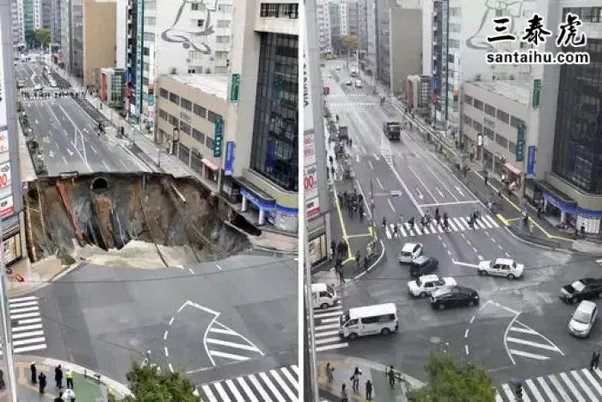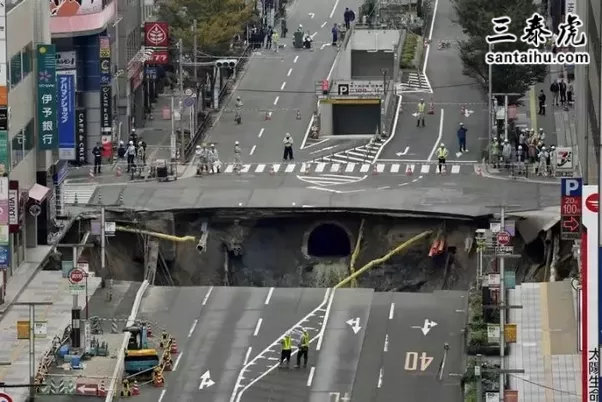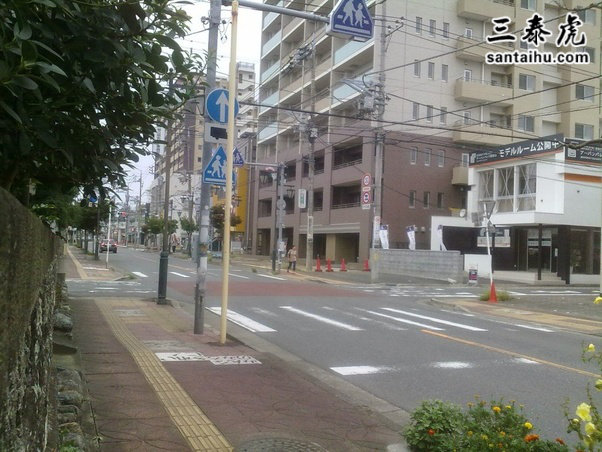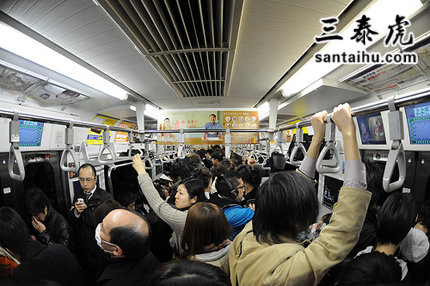美版知乎:印度可以向日本学习什么
What can India learn from Japan?印度可以从日本学到什么?Quora读者的评论:Bharadwaj Vangipuram, B.Tech Civil Engineerin
What can India learn from Japan?
印度可以从日本学到什么?
Quora读者的评论:
Bharadwaj Vangipuram, B.Tech Civil Engineering, Institute of Aeronautical Engineering (2019)
Originally Answered: What can India learn from modern Japan?
I will narrate you an incident which the head guru of Shri Rama Krishna mutt told us in a motivational speech.
He narrated this incident of him visiting a school in Japan to address their students and deliver a lecture. As most of Japanese students don't understand english there was a translator to translate the whole lecture to them. The lecture was intended to be for a duration of 2 hours but due to the translation it nearly took him 3.5 hours to complete the speech. The whole crowd was still and a lot of patience they heard the speech in a position in yoga like the picture below.
印度能从现代日本学到什么?
我想讲一件事,这是克里希纳穆特的导师在一次励志演讲中跟我们说过的。
那是他在日本访问一所学校,向学生发表演讲时的经历。由于大多数日本学生不懂英语,所以有一位翻译从头到尾翻译给学生。演讲原定2小时,但由于需要翻译,他几乎花了3.5小时才结束演讲。整个人群都很安静,很有耐心,他们在演讲期间一直保持瑜伽姿势,如下图所示。
The position is called Seiza.
The same speech and the same guru but the location was in Mumbai. The students well understand english but the crowd became restless because of the 2 hour speech. And to our astonishment when a pigeon came flying near a exhaust fan in the hall the whole crowd stated staring it as if they are seeing the bird for the first time.
This clearly gives an idea what Japan wants India to know. The enhancements in technology and sciences gives luxury but not concentration. In their school they don’t start teaching their students from kindergarten. They train them to sit, concentrate and hear. This helps students a lot in further education.
这个位置叫做正坐。
同样的演讲,同样的导师,地点在孟买。学生们听得懂英语,但2个小时的演讲让人群焦躁不安。令我们吃惊的是,当一只鸽子飞到大厅的排气扇附近时,所有学生都盯着鸽子看,就好像第一次看到这只鸟似的。
这清楚地说明了印度能从日本学习的地方。技术和科学的进步带来的是享受,而不是专注。在他们的学校里,不会从幼儿园就开始教学。他们会训练孩子端坐好、集中注意力并认真听讲。这对学生的后续教育有很大的帮助。
Anandan, Future Indian President
I see extremely wonderful answers here which are informative and of course brought many of Japan’s merits to our knowledge. I also have an answer to this question. Since most of the points are covered by others, I’ll share a story from Japan I have read an year ago.
What can India learn from Japan?
My answer will be extreme dedication, responsibility and care to its citizens.
Now I will share the story which made me write these points:
Japan Keeps a Train Station Running for Just One Regular Passenger
For the past three years, a train has stopped at the remote Kami-Shirataki station in the far north of Japan just twice a day. At 7:04 am prompt, it takes on a single passenger - a student on her way to school - and brings her home again at 5:08 pm.
我看到了非常精彩的答案,令人大开眼界,当然也让我们发现了日本的许多优点。我对这个问题也有一个答案。由于大多数观点其他人都提到了,我就分享一个一年前读过的日本故事吧。
印度能从日本学到什么?
我的回答是:对其公民的无私奉献、责任和关怀。
现在,我要分享一下促使我写下这些观点的故事:
日本为了一名普通乘客保留一个火车站
在过去的三年里,一列火车每天会在日本北部偏远的上白木车站停靠两次。每天早晨7:04准时到站,接上一名乘客—一名还在读书的学生——并在下午5:08把她送回家。
She catches the service at 7.04am and returns promptly at 5.08pm daily
Trains stop at the remote station based on the schoolgirl's class timetable
Hokkaido Railway Co. which operates railways in Japan has kept the underused station open for years for a good reason and decided to keep the station open for the girl - who has not been named in media reports - until she graduates from high school.
We must learn from this. The parental care they are providing to their citizens and the importance they are giving to the education of every single child.
她每天早上7点04分上车,下午5点08分回家。
火车根据女学生的课程表,停靠在这个偏远的车站
在日本经营铁路的北海道铁路公司多年来一直维持着这个冷清的车站的运营,并决定一直运营到女孩高中毕业。媒体报道中没有披露女孩的名字。
我们必须从中吸取教训。他们向公民提供了父母般的关怀,并非常重视每个孩子的教育。
Abhilash Chandra Sharma, PhD Chemistry from Indian Institute of Technology, Kanpur (2023)
I have not visited japan but this was narrated by Ateek Sir.
People in Japan stand is a single line when they stand on the escalator. But in india people stand randomly.
There are many small things which we should follow. These small things changes the people mindset when they look at us.
This is how people stand or go through staircase or elevator . I have not the picture of escalator. But you can relate with that.
This is how people in Japan stand on escalator . It looks good. We should also try to do this.
Metro in Tokyo is as much crowded as metro in delhi.
Edit-1 The reason why people in Japan stand like that, so that people who are in hurry can go immediately. Thanks Nina for pointing this.
我没有去过日本,这个故事是我从Ateek先生那儿听来的。
日本人站在自动扶梯上时,会站成一排。但在印度,人们总是随心所欲。
我们应该注意很多细节方面的事。这些小事改变了人们对我们的感受。
这是人们爬楼梯或搭乘电梯时的图片。我没有找到自动扶梯的图片。但你可以想象一下。
日本人就是这样搭乘自动扶梯的。看起来不错。我们也应该这样做。
东京的地铁和德里的地铁一样拥挤。
编辑-1为什么日本人要那样站,这样赶时间的人可以快速通过。谢谢尼娜指出这一点。
Jagriti Raman, Executive at Literary Council and Q-Frat, KNIT. (2017-present)
Japan is one such country, which being a small island has laid its emphasis all over the world since the early era.
It didn’t come from nowhere, rather it has arouse due to following reasons:-
Punctuality- It is customary for Japanese to be punctual. As Japanese are especially concerned about not being late, most have naturally acquired this habit. For example, 20 second delay in train profuse apologies and the conductor bows to passenger as they enter the train car.
日本就是这样的一个国家,它作为一个小小的岛国从很早的时候就开始在全世界受到重视。
这不是没有原因的,以下就是原因:
守时——日本人有守时的习惯。由于日本人特别重视不要迟到,大多数人自然而然地养成了这种习惯。例如,火车晚点20秒,列车员会不停地道歉,当他们进入车厢时,列车员会向乘客鞠躬致歉。
(img source: google)
图片来源:谷歌
The Education system- Children at 5–6 year age are send for elementary schooling. Moreover, Japanese schoolchildren walk to and from school by themselves, or even taking the trains or buses alone, making them independent since early age. Recently, australian TV channel SBS 2 recently shared a mini-documentary titled “Japan’s independent kids” on YouTube.
教育体系——5-6岁的儿童进入小学接受教育。此外,日本的小学生自己走路上下学,甚至独自乘坐火车或公共汽车,这让他们从小就开始独立。近日,澳大利亚电视频道SBS 2在YouTube上分享了一部名为《日本独立儿童》的小型纪录片。
Power Napping- It may sound weird, but power napping, a new trend aimed at improving worker efficiency in companies have become popular in Japan. A short nap has been found to restore energy, renew focus and improve mood.
小憩片刻——这听起来可能有点奇怪,但在日本,流行一种旨在提高员工工作效率的新趋势。人们发现,小睡片刻可以让人恢复精力,重新集中精力,改善情绪。
Technology attached to tradition- Its the best part to learn from japan. The country is so developed in technology but still its root in tradition is so deep. Its a captivating country, a kaleidoscope of ancient traditions swirling alongside modern technology. So, bringing up its home made technology, being connected to its traditions and beliefs, creates a respected image in front of the world and among its peer competetors.
技术与传统相结合——这是最值得向日本学习的部分。这个国家的科技非常发达,但传统却如此深厚。这是一个迷人的国家,古老传统的万花筒与现代科技共同起舞。因此,将本国技术与传统和信仰联系起来,在世界和同行中树立起受人尊敬的形象。
Er Sandhya Yadav, former Electronics and Communication Engineering at Rajiv Gandhi Proudyogiki Vishwavidyalaya, Bhopal
Japan is undoubtedly clean and littering and fines for it are completely unheard of. But get this, there are no dustbins either. No trash cans, only recycle bins that are strickly for plastic bottles and soda cans that are bought from nearby vending machines.
You might wonder what they do when have to discard something?
Well, the Japanese carry their rubbish with them untill they reach home or a place that might have a dustbin.
日本毫无疑问是干净的,乱丢垃圾和为此受到罚款的事闻所未闻。但是听着,这里也没有垃圾桶。没有垃圾桶,只有回收箱,只能放置从附近的自动售货机购买的塑料瓶和汽水罐。
你可能会好奇,要丢垃圾时他们怎么办?
嗯,日本人把他们的垃圾随身携带,直到他们回到家或去到一个可能有垃圾桶的地方。
In School, Student themself ensures the cleanliness of the campus and classrooms. Japanese children are taught from very young age to keep their surrounding tidy and household responsibities are not alien to them.
在学校里,学生自己负责校园和教室的清洁。日本儿童从小就被教导要保持周围环境的整洁,对他们来说家务活并不陌生。
Shivam Jindal, Software Development Intern at Arista Networks
( Reaction of Japanese and Indian when they see a person doing a job well )
Japanese : If he can do it, then even I can do it and I'll do it now!
Indian (pun intended) : If he can do it, then let him do it.
Only if Indian fellows understand.
Thank you.
(日本人和印度人看到一个人很棒地完成工作时的反应)
日语:如果他能做到,那么我也能做到,现在就去做!
印度语(双关语):如果他能做到,那就让他做吧。
只有印度人明白了。
谢谢你!
Shashi Ranjan, Educator
I would like to mention some good things about Japan,which we should learn.1st of all we will talk about Japan's topography.
1.)Hily terrain:-Japan is an Island country. It has difficult terrain. It is situated on conjunction of 3 active plates. That's why it has volcanic mountain and has large possiblity of frequent earthquake,tsunami,and volcanic eruption.
-80℅ of Japan is rugged topography. That's why most of its population lives in east coast because that is the only plain region.
-Small and swift flowing rivers which scars for drinking water.
-Japan has only 20℅ of agriculture land means problem of food security.
-Japan is the largest importer of coal and crude oil,Japan is unlucky in case of natural resources. (Except in fishery zone.)
Besides these complexity, things which makes Japan to stand on top are:
我想说说日本的一些优点,这是我们应该学习的。首先,我们来讨论一下日本的地理条件。
1)。多山地形:日本是一个岛国,地形很复杂。它位于三个活动板块的交接处。这就是为什么它有火山,容易频繁发生地震、海啸和火山爆发。
-日本80%的地形崎岖不平。这就是为什么日本大部分人口生活在东海岸,因为那是唯一的平原地区。
-水流湍急的小河,为了饮用水建了很多水利设施。
-日本只有20℅的农业土地,这意味着食品安全存在隐患。
-日本是世界上最大的煤炭和原油进口国,日本在自然资源方面很匮乏。(不过幸运的是日本处于渔业区内)
除了这些,使日本跻身世界一流国家的因素是:
1.)Their attitude to endeavor.
2.)Punctuality:- everybody knows about Japanese trains punctuality,if the train got late even for one minute they send apologizing letter to each and it got published in next days newspaper. Many people don't want to work with Japanese because they are so punctual that even their higher official reach the site exact on time and expect same from others.
3.)Hard working:- read this news from japan Working overtime to death in Japan .
Their govt. made law for ceiling on overtime hours.
4.)Because of scare of land they developed the technology of Indoor Farming,airport on sea,solar plant on sea.
5.)Japan is the only victim of Nuclear attack in this world.The black day of world history. Which throws them back to many decades.But how the fight back is an example.
This much for a small country japan,but many things to be learned.
1)。他们努力的态度。
2)。准时:每个人都知道日本火车很准时,火车晚点哪怕一分钟,就会给所有人发道歉信,刊登在第二天的报纸上。许多人不愿意和日本人一起工作,因为他们非常守时,甚至他们的主管也会准时上班并期望其他人也能做到这一点。
3)。努力工作:读一下这则来自日本的新闻,日本的加班猝死。
他们的政府不得不制定加班时间上限的法律。
4)。由于土地稀缺,他们开发了室内农业、海上机场、海上太阳能发电厂等技术。
5)。日本是世界上唯一遭受核攻击的国家。那是世界历史上一个黑暗的日子。这让他们一夜退回到几十年前。但他们的反击又是一个榜样。
对于日本这样一个小国来说,有很多东西值得我们学习。
Shrey Mahajan, a proud Indian
People in Japan work themselves to death. This is no joke.
Karōshi is a specific word in Japanese that means overwork death.
This is a typical day at the streets of Japan where young businessmen and working people pass out on streets because of such high amount of work.
日本人工作到死。这不是玩笑。
Karōshi是一个专属词汇,在日本意味着过劳死。
这是日本街头的典型一天,年轻的职员因为工作过劳而昏倒在大街上。
People are excessively working in Japan which is actually causing deaths of many of them.
1456 people died due to overwork in Japan in 2015–16.[1]
To see more of the harsh reality here's a video that covers this horrific reality.
This is a very serious problem and any country that wants to develop should not move at a pace that kills its own citizens. There is no meaning of development of you cannot enjoy life, or for that matter can't have one.
This is something that not only India, but every country must learn from Japan.
I hope I helped.
人们在日本过劳工作,这导致了许多人的死亡。
2015年至2016年,日本有1456人死于过劳工作。
如果你们想了解更多残酷的现实,这里有一段视频来说明这个可怕的现实。
这是一个非常严重的问题,任何有志发展的国家都不应以残害本国公民的高速前进。如果不能享受生活,那发展是没有意义的。
这不仅是印度,而且是每个国家都必须向日本学习的东西。
希望我能帮上忙。
Bharath Sai, Political Observer
Here I'm not going to write about the apparent things: that Japan is well disciplined, industrialized or honest. These were already covered at length in other answers.
Can you say what is wrong with India? I bet there are thousands of things that come to your mind.
Now can you say something what is wrong with Japan? I don't think you can be able to answer in the same pitch you have answered the earlier question.
Have you read something bad about Japan? Ever wondered why the media, which is generally critical about everything, never portrays Japan in a poor light? Can you think of something wrong about Japan? Have you realized that you are being influenced by something? What is it?
Soft power.
Soft power is the ability to influence the decisions in other countries without the use of force. It is different from hard power, which relies on military or economic might.
So how did Japan start projecting it's soft power?
Following the destruction in WW2, Japan hoped to rebuild their economy as well as it's national image. From a fierce military power, Japan took the route of soft power. Even the foreign policy of Japan was titled as Japan's Gross Nationalist Cool.
Instead of collapsing beneath its widely reported political and economic misfortunes, Japan's global cultural influence has quietly grown. From pop music to consumer electronics, architecture to fashion, and animation to cuisine, Japan became a cultural superpower.
Culture has become an industry in Japan. You are forced to think the way Japan wants you to think about about her.
Can India also learn from the experiences of Japan? Can it harness it's soft power and influence the decisions elsewhere?
显而易见的事,我就不说了:日本纪律严明、工业化程度高,诚实守信。这在其他答案中已经详细讨论过了。
你能说说印度出了什么问题吗?我敢打赌,你会想到成千上万的事情。
现在你能说说日本出了什么问题吗?我觉得你不会用刚才回答过的那个问题的语气来回答的。
你看到过日本有什么不好的事吗?你有没有想过,为什么对所有事情都持批评态度的媒体从来没有对日本进行过负面报道?你能想到日本有什么问题吗?你意识到你受到过什么东西的影响吗?是什么?
软实力。
软实力是指在不使用武力的情况下影响其他国家决策的能力。它不同于依赖军事或经济实力的硬实力。
那么,日本是如何开始展示其软实力的呢?
二战后,日本希望重建经济和国家形象。日本从一个军事霸主,走上了软实力之路。甚至日本的外交政策也被称为日本民族主义的淡化。
日本的全球文化影响力并未因其广泛见报的政治和经济灾难而崩溃,而是悄然增长。从流行音乐到消费电子产品,从建筑到时尚,从动画到美食,日本成为了一个文化超级大国。
文化在日本已经成为一种产业。你只能以日本希望的方式来看待她。
印度能否借鉴日本的经验?它能否利用自己的软实力,影响其他国家的决策?
Anonymous
Originally Answered: What should Indians learn from Japan?
Japan rose to glory from ashes.
It's a small county with hardly any resources. It's prone to frequent tsunami and earthquakes. The country has a terrible past. You would expect the citizens to die of self pity but no.. they rise and shine amidst all odds…
That's the fact- the power of a country doesn't lie in it's dimensions, resources, beauty, past etc. It lies in the hands of it's citizens.
I like reading random stuff on the Internet and there are several travalogues, news reports etc related to Japan that made me feel there is a lot, not only India, but the whole world can learn from.
最初的问题是:印度人应该向日本学习什么?
日本从废墟中崛起。
这是一个几乎没有任何资源的小国家。经常发生海啸和地震。这个国家有着可怕的过去。你以为市民会自艾自怜,萎靡不振,但事实并非如此。他们在这一切逆境中崛起并闪耀在世界舞台…
这就是事实——一个国家的力量不在于它的规模、资源、美景、历史等等。而是掌握在公民手中。
我喜欢在互联网上随意浏览,我看到了一些关于日本的游记、新闻报道等,这让我觉得不仅印度,全世界都有很多值得我们学习的地方。
1.I read this travelogue of a guy who had visited Japan. He was travelling in a bullet train, just sitting and looking around. Then he saw this guy moving from seat to seat with a needle and thread and stitching the torn seat covers! The protagonist, surprised, goes forward and asks the man whether stitching-seat-covers-on-bullet-train job actually exists? The man laughed and replied that he actually worked at SONY and he commutes by the train daily and cause he's free for 10 minutes, spends his time stitching the torn seats!
2.In Japanese schools, discipline, good manners, value education etc is done for the 1st few years. What a strong base! Hats-off!
3.Again, Japanese schools don't hire maids. The cleaning work is done by the students itself.
4.If you get late to school/work due to public transport service, they them self issue a letter claiming that the fault was theirs! Such responsibility!
5.Considering the fact that natural calamities are an everyday affair, one expects lot of causality on daily basis but nah! Everybody is well trained to deal with such crises and even the property restoration is done without delay!
6.When, few years ago, tsunami of huge magnitude occurred in Japan, one of the Nuclear power station was adversely affected. Obviously, it would be hazardous for people to work their. That's when a group of old men voulentered to work, saying that as they are old and anyhow gonna die, they can take the risk.
7.A disfunctional train was bought back to function just because of a girl who needed that train to travel to school! Talk about priorities!
There are so many more such stories but the message is the same. Human resource is the most powerful one! Good and responsible citizens are foundation of a good nation!
1.我读过一个去过日本的人的游记。他搭乘新干线,四处打量。然后他看到一个人拿着针线从一个座位移动到另一个座位,把有裂缝的座套缝补好!这个人惊讶地走上前问这名男子,难道还有缝补新干线座位的工作?这名男子笑着回答说,他实际上在索尼工作,每天乘火车上下班,所以他有10分钟的空闲时间,他就把时间拿来缝补破损的座套!
2.在日本的学校里,初入学几年都在强调纪律、礼貌、价值教育等。基础打得多牢!致敬!
3.同样,日本学校不雇佣帮工。清洁工作都是由学生自己完成的。
4.如果你因为公共交通服务上学/工作迟到,他们会主动给你出具一封信,承认自己的错误!看看这责任感!
5.考虑到自然灾害随时会发生,每个人都受过良好的训练来处理这样的危机,甚至不浪费任何时间进行重建!
6.几年前,当日本发生巨大海啸时,一座核电站受到了影响。显然,对在那里工作的人们来说很危险。就在这时,一群老年人自发来工作,他们说,他们老了,早晚都得死,所以他们可以冒这个险。
7.一趟停运的火车被重新启用,仅仅因为一个女孩需要搭乘那辆火车去上学!瞧瞧!
这样的故事还有很多,但传达的是一个意思。人是最有力的资源!好公民和负责任的公民是好国家的基础!
Shreyas Shahane, studied at Bachelor of Engineering Degrees
Japan is the only Asian country which is actually competing with the West.
Automobile Industry - Toyota, Nissan and Honda are known for their Cars world over.
Electronics Industry - Japanese Companies like Sony, Nintendo, Panasonic, Canon keep churning out awesome gadgets. There are many electronics companies in Japan like Kodak, Casio, Sharp and Toshiba and many more.
IT - Fujitsu is second in terms of revenue after IBM (Just because India has a lot of IT Companies doesnt mean that India is the BEST in IT).
Investment Banking - Nomura competes with the Biggest Investment Banks of the West like Goldman Sachs and JP Morgan.
Japan as a country lies in an area of high seismic activity and is prone to many earthquakes. But their buildings don't fall like a pack of cards during earthquakes.
I can go on like this ..... Oh I forgot Bullet Trains
日本是唯一一个能与西方一争高下的亚洲国家。
汽车工业——丰田、尼桑和本田的汽车全球闻名。
电子产业——像索尼、任天堂、松下、佳能这样的日本公司一直在大量生产很棒的电子产品。日本有许多电子公司,如柯达、卡西欧、夏普和东芝等。
IT——富士通的收入仅次于IBM(印度有很多IT公司,但并不意味着印度就是IT行业的佼佼者)。
投资银行——野村证券能与西方最大的投资银行如高盛和摩根大通媲美。
日本是一个地震频发的国家。但是他们的建筑可不像纸牌一样脆弱。
我还可以继续举例说下去……哦,我忘了,还有新干线
Arjhun Srinivasan, Proud to be an Indian
Originally Answered: What can Indians learn from Japanese?
The incident which i am going to post happened on November 8th 2016.
Indian government can definitely take a leaf out of the efforts done by the Japan’s Public Work Department.
Giant sinkhole in Fukuoka, Japan fully restored one week after road collapse
最初的问题是:印度人能跟日本学到什么?
我要举例的事故发生在2016年11月8日。
毫无疑问,印度政府可以向日本公共事业部门学习一下。
日本福冈巨大的塌陷坑在道路坍塌一周后就完全恢复了。
The gigantic hole in downtown Fukuoka, southern Japan, first appeared on November 8th cutting off power, water and gas supplies to parts of the city.
The incident prompted a swift response as construction workers immediately began to fill the hole that spanned the five-lane street.
The road was reopened at 5:00am Tuesday local time — just in time for rush hour.
Reconstructing the road was no easy feat — the massive cave-in spanned more than half an Olympic-size pool near the city's busy Hakata station, with muddy underground water flowing into the hole.
Fukuoka mayor Soichiro Takashima, released a statement apologising for the "great trouble" the sinkhole had caused.
He expressed his gratitude to workers for their efforts completing the restoration work "promptly with safety first".
"From now on I will do my utmost to investigate the cause and compensate for the damage," the statement said.
The cause of the collapse in the city's Hakata district had been linked to ongoing subway construction nearby.
11月8日,日本南部福冈市中心出现了一个巨大的塌陷坑,切断了该市部分地区的电力、水和天然气供应。
这一事件引发了快速的反应,建筑工人立即开始填补横跨五车道街道的巨坑。
这条公路于当地时间周二凌晨5点重新开放,正好赶上交通高峰期。
重建道路并非易事——巨大的塌陷坑横跨了城市繁忙的博多车站附近,大小有半个奥运会规模的游泳池以上,浑浊的地下水流入洞中。
福冈市市长高岛宗一郎发表声明,为巨坑造成的“巨大麻烦”道歉。
他对工人们“及时、安全”地完成修复工作表示感谢。
他发表声明称:“从现在起,我将尽最大努力调查事故原因,并赔偿损失。”
这座城市博多区的坍塌原因与附近正在进行的地铁建设有关。
Krupali Donda, Research Intern at Institute for Plasma Research
1.Good manners: This is very important thing I think Indians should learn from Japanese. Manners matter, so smiling, being polite and thanking people is mandatory when asking locals for directions.
2.Clean country: Japan is undoubtedly clean, and littering and fines for it are completely unheard of. But get this, there are no dustbins either. No trash cans, as far as the eye can see, just recycle bins that are strictly for plastic bottles and soda cans that are bought from nearby vending machines.
1.礼貌:这是非常重要的事情,我认为印度人应该向日本人学习。礼貌很重要,所以向当地人问路时,一定要微笑、礼貌、感谢他人。
2.干净的国度:日本无疑是干净的,乱扔垃圾和罚款闻所未闻。但是听着,这里也没有垃圾桶。放眼望去,没有垃圾桶,只有专门用来放置从附近的自动售货机购买的塑料瓶和汽水罐的回收箱。
3.Religious harmony: Despite being the frontrunners of technology and coming up with innovative ideas, traditions and religion still influence the daily life of the Japanese. Businessmen pay their respects at the shrines of deities while excited students buy good-luck charms and fortunes foretelling the future.
4.No room for theft: Despite the notorious existence of the Yakuza, Japan is quite a safe place, and petty crimes like pickpocketing and theft are virtually non-existent. Primary school children are taught from an early age that if they do come across an object that doesn't belong to them, they should attempt to find the owner, or bring it to the nearest police station. I have seen several shop owners run after customers who might have forgotten their bags while buying something at their store.
5.Use of public transport: One of the reasons Japan has such an incredibly good network of public transport is that so many people are prepared to use it. Contrast this with Australia, where people are still obsessed with their cars – in Japan everyone takes the subway, or the train, or the bus, or they cycle.
3.宗教和谐共处:尽管日本是科技的领跑者,不断创新,传统和宗教仍然影响着日本人的日常生活。商人们在神龛前表达敬意,活泼的学生们则会求购幸运符来预言未来和财富。
4.小偷没有立足之地:尽管日本黑帮臭名昭著,但日本是一个相当安全的地方,扒窃和盗窃等轻微犯罪几乎不存在。小学生从小就被教导,如果遇到不属于自己的东西,应该设法找到失主,或者带到最近的警察局。我见过几个店主发现来店里买东西的顾客遗落了钱包,他们追着顾客交还钱包。
5.公共交通:日本拥有如此完美的公共交通网络的原因之一是使用者众多。与此形成鲜明对比的是,澳大利亚人仍然痴迷于用于自己的汽车——在日本,每个人都乘坐地铁、火车、公共汽车或自行车。
6.The toilets: Japanese toilets are the best. They're always clean, the seats are heated, and they have more buttons and functions than your parents' stereo.
6.厕所:日本的厕所是最好的。总是很干净,座位是加热的,比你父母的立体声音响上的按钮和功能都要多。
版权声明
我们致力于传递世界各地老百姓最真实、最直接、最详尽的对中国的看法
【版权与免责声明】如发现内容存在版权问题,烦请提供相关信息发邮件,
我们将及时沟通与处理。本站内容除非来源注明五毛网,否则均为网友转载,涉及言论、版权与本站无关。
本文仅代表作者观点,不代表本站立场。
本文来自网络,如有侵权及时联系本网站。
-
1
चाइना में रेडी और ठेले Local shops in china || L...
- 2
- 3
- 4
- 5
- 6
- 7
- 8
- 9
- 10
-
1
चाइना में रेडी और ठेले Local shops in china || L...
- 2
- 3
- 4
- 5
- 6
- 7
- 8
- 9
- 10
